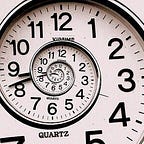The Unsafe House
By Bruce Sterling
The narco pulled three steel thermoses out of his desk. The flasks were the size and shape of mortar rounds. He popped the tops and decanted a taste from each into three fancy Chinese porcelain cups.
“You’re risking your career to buy the best coffee left in this world,” said the narco, blinking his tiny yet acute pig-like eyes. “I can supply this coffee, because running illegal supply chains is my role in this unhappy world. But before I sell you any, I want you to experience three different types of coffee. Let’s see if you can tell me which one is good, which is bad, and which is just weird.”
“You want me to guess about that?” said the cop. The policeman was much younger than the Mexican narcotics lord, but had survived much similar action in similar arenas of violence and corruption. He was almost as intelligent as the ancient criminal.
“I bet that you guess wrong,” the narco declared. “That’s because you’re a soldier, a bureaucrat, and a Yanqui hick. Me: I sell the best coffee from the bleeding ruins of Colombia. It’s in one of these three thermoses — the name is inscribed on the bottom. The other two are inferior coffees. One is made from an old jar of freeze-dried crystals that we looted from a flooded grocery, here in Los Angeles. It’s the old-time coffee, from before the weather troubles. Cheap stuff off the consumer shelf. Your mom and dad used to drink it. The third is the futuristic Chinese coffee. They make in bio-labs in Shenzhen. It’s fake. Completely bogus. A modern-day global trade fraud. It doesn’t even come from coffee beans.”
“I really hate those Chinese disaster rations,” said the cop. “They keep you on your feet, but half an hour later, you’re hungry again.”
“You claim that you hate it, but you won’t know disaster when you taste it,” said the narco. “That’s what I think.” He squeaked back in his vintage Aeron chair and steepled his wrinkled brown fingers. “So: guess right, and you win. I’ll give you a shipment for free: one hundred kilos, fresh-roasted. Your bosses back in Washington will love that. Let them drink their fine coffee in the morning, and they can pretend that the world is still good. Cops always like coffee.”
“Habit is a comfortable thing,” said the cop.
“The rich will pay you not to be disturbed in their routines. That is the business you cops are in: protecting the delusions of the rich. It’s a better business than mine, which is filling humanity’s bloodstream with substances which make us delusional. So I don’t want to play cheap games of moral equivalency here. Oh no! I just want to make it clear that, as a street-smart operative from outside the rule of law, I know a lot more about coffee than you do.”
The cop had grown used to the philosophizing of the narco warlord. The cop had spent long years in Afghanistan fighting the heroin trade, only to watch the business boom to fantastic proportions. As he labored to repress their crimes, the Afghan warlords became steadily more poetically divorced from Western law and reason. The weirder and crueler their whimsies, the harder it was to predict their strategic behavior.
Killing their kingpins was counterproductive. Kingpins were the only people it was possible to persuade and mollify. Drug kingpins were exemplars of modernity. Afghanistan — far from being some backward wasteland — was the bellwether territory for a failed globe.
The cop gently touched the blue rim of the Chinese cup on the far right. “How do I know that stuff is even coffee?”
The narco rapidly knocked back all three cups of coffee and poured three fresh shots from the thermoses. “That skeptical remark is going to cost me,” he said. “Now I’ll be up half the night, reading old JG Ballard disaster novels in Spanish. Classic literature is the only thing that consoles me in these dark times. Especially female Canadian novelists. A wonderful people, the Canadians.”
“A lot of shale oil up there in Canada,” nodded the cop.
“A lot of water,” said the narco. “I remember when it rained here in California. Sometimes, in the mountains, it snowed.”
“Why do we have to bet anything?” said the cop. “Just tell me what you want. I came here to deal.”
“I want what most other entrepreneurs want,” said the narco. “I want an exit strategy. I want to devote my time to the garden and the grandchildren, just like Vito Corleone in the Francis Ford Coppola classics. He had a nice vineyard once, Coppola. I’m richer than a movie director by ten times, but no vineyards for me. Nothing but the storms, droughts, high winds… So, where can I retire? Where can I wake up in the morning, where each day is peaceful, just like the last?”
“There’s prison,” the cop offered. “Maybe a cushy low-security situation.”
The narco shook his balding, age-spotted head. “Been there, done that.”
“Couldn’t you go back to Sinaloa? You were always a folk hero in your home state.”
“They kill the folk heroes in Sinaloa,” said the narco, “because that makes for a better folk-song. Besides, I loved the old hills and fields. I can’t bear to see my homeland wrecked by the floods and droughts. It’s like seeing a woman you once loved reduced by methedrine. Cracked skin. Red eyes. No teeth.”
“It must be hard to remember all that, and still be alive here, so old and alone.” The cop lifted the three coffee cups, one after another, and sampled them.
“So,” said the narco. “Which is the good one, which is the bad one, and which one is ugly?”
“They’re all exactly the same.”
What does our climate future look like to you? Write your own story below.
